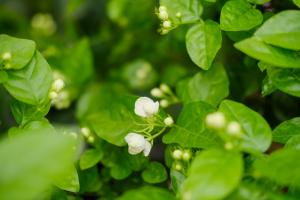Can You Over Water Raspberry Plants?
Raspberry plants are popular plants that are grown for their delicious and highly nutritional fruits. These plants are easy to grow and take care of, and they can thrive in a variety of different climates and soil conditions. However, one common question that many raspberry plant growers ask is whether it is possible to over water these plants.
Impact of Over Watering Raspberry Plants
Over watering raspberry plants can have a number of negative impacts on plant growth and fruit production. When a raspberry plant is over watered, its roots can become waterlogged and suffocated. This can prevent the plant from absorbing essential nutrients and minerals from the soil, which can lead to reduced plant growth and fruit production. Over watering can also make the soil too acidic or alkaline, which can cause further damage to the plant and fruit.
How to Determine if You are Over Watering Your Raspberry Plants
If you are unsure whether you are over watering your raspberry plants, there are a few signs to look out for. One of the most obvious signs of over watering is the presence of standing water around the base of the plant. You may also notice that the soil around the plant is constantly moist or soggy. Another sign of over watering is the presence of yellow or brown leaves on the plant, which can be an indication of root damage or nutrient deficiency.
How to Water Raspberry Plants Properly
To ensure that your raspberry plants are getting the right amount of water, it is important to water them properly. When watering raspberry plants, it is important to avoid getting the leaves or fruit wet, as this can encourage the growth of mold and fungus. Instead, aim to water the soil around the base of the plant, making sure to water deeply but infrequently. Ideally, raspberry plants should be watered once a week, or when the top inch of soil feels dry to the touch.
Additional Tips for Growing Healthy Raspberry Plants
In addition to proper watering, there are a number of other tips and tricks you can follow to help your raspberry plants grow and thrive. For example, raspberry plants require plenty of sunlight to grow and produce fruit. Make sure to plant them in a location that receives at least 6-8 hours of direct sunlight each day. Fertilizing your raspberry plants with a balanced fertilizer can also help to boost plant growth and fruit production.
Avoiding overcrowding can also help to promote plant health and longevity, as overcrowded plants can be more susceptible to disease and pests. Additionally, pruning your raspberry plants regularly can help to prevent the spread of disease and promote healthy new growth.
Conclusion
While raspberry plants are a hardy and resilient plant, it is important to avoid over watering them in order to promote healthy growth and fruit production. Proper watering, sunlight, fertilization, and pruning can all help to ensure that your raspberry plants are healthy and productive year after year. By following these tips and tricks, you can enjoy a bountiful harvest of delicious and nutritious raspberries, straight from your own backyard.

 how many times do yo...
how many times do yo... how many planted tre...
how many planted tre... how many pine trees ...
how many pine trees ... how many pecan trees...
how many pecan trees... how many plants comp...
how many plants comp... how many plants can ...
how many plants can ... how many plants and ...
how many plants and ... how many pepper plan...
how many pepper plan...































